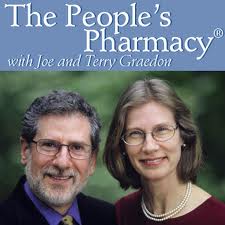 Physicians need to broach discussions about out-of-pocket costs with patients the same way they discuss a treatment’s side effects, public policy professors wrote.
Physicians need to broach discussions about out-of-pocket costs with patients the same way they discuss a treatment’s side effects, public policy professors wrote.
“Admittedly, out-of-pocket costs are difficult to predict, but so are many medical outcomes that are nevertheless included in clinical discussions,” Peter Ubel, MD, of Duke University’s School of Public Policy, and colleagues wrote.
They noted in a New England Journal of Medicine perspective published Wednesday that patients can experience considerable financial strain from out-of-pocket costs, with little or no discussion beforehand about potentially avoidable health-related bills… (Read more here)
Full Disclosure: Out-of-Pocket Costs As Treatment Side Effects

Here is a link to an article I co-authored in the New England Journal this week, with Yousuf Zafar and Amy Abernethy. In the article, we urge physicians to talk about out-of-pocket costs with patients, given that these costs can sometimes have a bigger negative impact on their lives than the kind of treatment side effects we feel compelled to discuss with them.
Here is also a podcast the New England Journal put together with me on the topic.
The Critical Side Effect Doctors Aren't Discussing: Out-of-Pocket Costs
In this video, I talk about why doctors should talk to patients about out-of-pocket costs when evaluating treatment options.
Does Larry Summers Have the Social Intelligence to Be Federal Reserve Chair?
 I know, I know: I usually write about health and healthcare; why should anyone care about my opinion on whether Larry Summers should be Federal Reserve Chair?
I know, I know: I usually write about health and healthcare; why should anyone care about my opinion on whether Larry Summers should be Federal Reserve Chair?
As it turns out, my work on doctor/patient communication has given me insight into the danger of judging job candidates—be they physicians or Federal Reserve chairs—based purely on technical intelligence, when excelling at these jobs also relies, critically and crucially, on social intelligence and on the ability to communicate with clarity and compassion.
In Critical Decisions, I tell a number of stores about physicians failing at their jobs because they lack these qualities—physicians with great technical intelligence who demonstrate little ability to communicate clearly and compassionately to their patients; physicians with great knowledge of illness, but little understanding of their patients’ emotions. Too often, the result is a breakdown in the doctor/patient relationship, that reduces the quality of people’s healthcare.
Medical physicians and economists have a lot in common. Both groups are selected into graduate school largely on the basis of mathematical and scientific reasoning ability. And in some roles, such abilities are all they really need… (Read more and view comments at Forbes)
The Limits of Patient Empowerment
The video below is not super high quality, but it captures a talk I gave in Lima Peru recently, a very personal talk that also reveals some of the dangers of assuming that medical decision making will go swimmingly well as long as patients are informed and empowered. Check it out.
(Click here to view comments)
Another Review of Critical Decisions
Here’s a link to a review of Critical Decisions published in a journal called Theoretical Medicine and Bioethics. The reviewer had some nice things to say, but felt it wasn’t theoretical enough for his liking. Not surprising given that I wrote the book for a general audience, and not for an academic one. But this kind of review does motivate me to try to write some more spin-off articles, aimed at academic audiences, to go into some of the theoretical issues I raise in Critical Decisions in a more thorough, and academic manner. Good to remember in the meantime: writers have to know their audience. And my goal in writing Critical Decisions was to reach a broad one, not just an academic one.
Is It Hazardous to Guess Your Risk of Cancer?
In this two-minute video, I explained why it can be hazardous to take a guess at what your lifetime risk is of experiencing cancer. I describe a study I conducted with, among others, Angie Fagerlin. This is one of my favorite studies, because it is really counterintuitive and raises important questions about health communication and medical decision-making. Take a look at the video, and let me know what you think about it.
(Click here to view comments)
Hear My Discussion with Joe and Terry Graedon on People's Pharmacy
 Here is a link to a podcast of my recent appearance on People’s Pharmacy, an NPR show that hopefully reaches you where you live. (If it doesn’t, you should ask your radio station to pick it up. It is a great show.) In this podcast, Joe and Terry lead me on a wide ranging conversation, mainly but not exclusively about Critical Decisions.
Here is a link to a podcast of my recent appearance on People’s Pharmacy, an NPR show that hopefully reaches you where you live. (If it doesn’t, you should ask your radio station to pick it up. It is a great show.) In this podcast, Joe and Terry lead me on a wide ranging conversation, mainly but not exclusively about Critical Decisions.
(Click here to view comments)
Review of Critical Decisions
 “Revolutions are often fought over dichotomies—the king versus the people, the bourgeoisie versus the proletariat, and, of course, the autonomous patient versus the paternalistic doctor.” So observes Peter Ubel in the conclusion of Critical Decisions: How You and Your Doctor Can Make the Right Medical Choices Together.
“Revolutions are often fought over dichotomies—the king versus the people, the bourgeoisie versus the proletariat, and, of course, the autonomous patient versus the paternalistic doctor.” So observes Peter Ubel in the conclusion of Critical Decisions: How You and Your Doctor Can Make the Right Medical Choices Together.
Who decides? Doctor or patient? For decades, too many of the advocates who have tangled with the establishment to empower patients have acted as though there is only black and white. The patient decides, not the doctor. The result has been a toxic standoff.
By throwing the dichotomy under the bus, Ubel takes a crucial step forward. Patients and doctors must work together to get to the right decision. The much tougher questions follow: How? What are the rules of engagement? How should the interaction proceed? Who does what?
Ubel’s expert dissection of the hidden complexities of these questions is thorough and impressive. In addition, Ubel is quite evidently a gifted writer,thinker, and communicator. Critical Decisions is a first-rate effort to popularize the science of medical decision making. Some readers will devour this book;in fact, researchers in the medical decision-making community might finish itin a single sitting. And general readers with an intellectual interest in healthcare—those who eagerly anticipate Atul Gawande’s next New Yorker article…(Read more at Health Affairs)
Breast Cancer Hotline Reveals Widespread Communication Problem with Doctors
I got an email recently from someone who read Critical Decisions, and who said it resonated with her in part because of work she does with a breast cancer hot line.
“I’ve been volunteering as a Helpline worker for Living Beyond Breast Cancer. We get a lot of calls from women who seem to have communication problems with their doctors. Sometimes they don’t understand aspects of their treatment or are puzzled by unexpected side effects or think they’ll be seen as complainers if they speak up. We always tell them it’s part of their doctors’ jobs to answer questions and explain stuff, and we try to give them some information about what they’re experiencing to help them formulate questions. But your book also made me think it would be a good idea to help them articulate their values and priorities.”
My advice: Write down your questions in advance. And bring someone along to the visit, if possible, who is not shy about asserting themselves in front of doctors.
Any other suggestions you would have her pass along to the women calling in?
